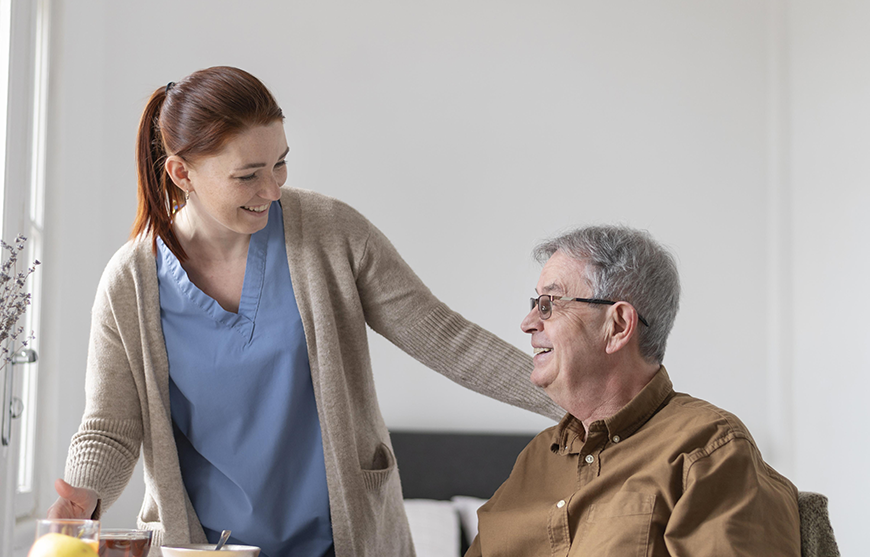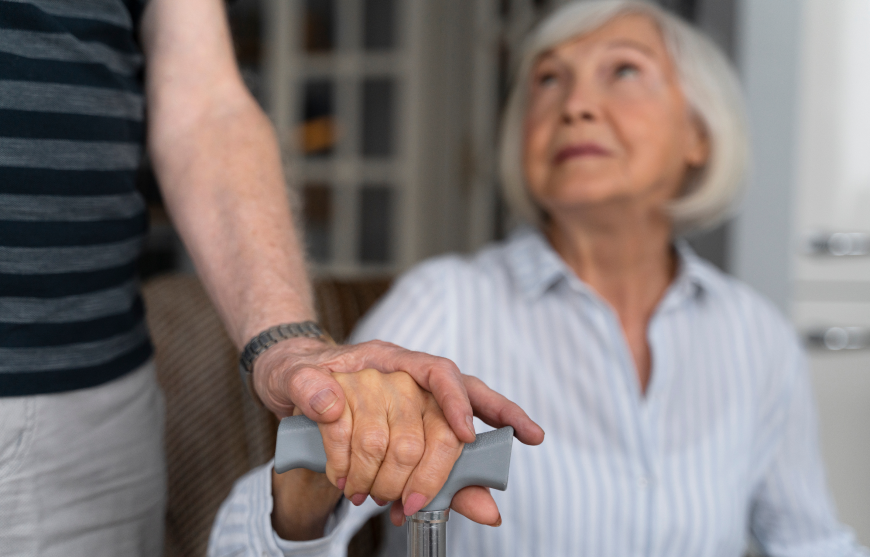Understanding 24/7 Care at Home
When families hear about 24/7 care at home, they often wonder what it truly involves and how it differs from other care options. This type of service ensures that an individual receives continuous assistance day and night, giving peace of mind that someone is always there to help. Unlike part-time or visiting care, this option provides round-the-clock monitoring, whether for health needs, mobility assistance, or companionship. It means that no matter the time of day, someone is available to respond to emergencies, provide reassurance, or support with daily living tasks. For many, this level of care offers an alternative to moving into a care home or nursing facility. It allows individuals to remain in the comfort of their own surroundings while benefiting from professional and reliable assistance. Families considering this service often do so because it balances independence with safety in a way few other solutions can.
Who Can Benefit from 24/7 Care at Home
Not every household requires round-the-clock care, but for those who do, the benefits can be life-changing. Seniors dealing with complex medical conditions or reduced mobility are among the most common recipients of 24/7 care at home. People recovering from surgery or serious illness may also find this service critical during their recovery period, especially if they need frequent assistance or medication management. Those living with progressive conditions such as dementia or Alzheimer’s benefit significantly because they need supervision and consistent support. Families of individuals with disabilities may also seek 24/7 care to ensure their loved one’s needs are always met without gaps. This service is equally valuable for people with high fall risks who need someone nearby at all times. Care is not only about physical support but also emotional reassurance, which helps reduce anxiety for both the individual and their family. The flexibility and adaptability of this model make it suitable for a wide variety of circumstances.
Core Services Provided in 24/7 Care at Home
The range of services offered in 24/7 care at home is designed to meet both medical and non-medical needs. Personal care such as bathing, grooming, dressing, and hygiene assistance is a cornerstone of this support. Caregivers also manage medication schedules, ensuring prescriptions are taken correctly and on time. Mobility support is another vital area, with caregivers helping individuals move safely around their home and preventing falls. Beyond physical care, caregivers provide companionship and emotional support, which can have a profound effect on overall well-being. Daily living assistance is also included, such as preparing nutritious meals, completing light housekeeping, and helping with errands. Some caregivers may be trained to provide more specialized health monitoring, depending on the individual’s condition. This holistic approach ensures that every aspect of a person’s daily life is covered, giving them dignity, comfort, and confidence.
The Benefits of 24/7 Care at Home
Families often notice dramatic improvements in both safety and quality of life when choosing 24/7 care at home. One of the greatest advantages is that the individual can remain in familiar surroundings, avoiding the stress of moving to a residential facility. The presence of a caregiver ensures that emergencies are addressed quickly, which can be critical for those with health concerns. Personalized care means that routines, preferences, and cultural practices are respected, creating a more fulfilling daily life. Emotional well-being is supported through companionship, reducing loneliness and isolation, which are common challenges for seniors. Family caregivers also gain relief knowing they have dependable help, which eases stress and prevents burnout. Another major benefit is the flexibility to adjust the level of care as needs change over time. Overall, it is a solution that promotes independence while maintaining safety and peace of mind.
Professional Caregiver Qualifications and Training
The quality of 24/7 care at home relies heavily on the skills and dedication of caregivers. Professional caregivers often hold certifications in areas such as first aid, CPR, and specialized training for conditions like dementia care. Many agencies ensure that their staff undergo continuous education to stay updated with the best practices in caregiving. Compassion, patience, and attentiveness are equally important as technical skills, as caregiving is a deeply personal and relational role. Agencies also conduct thorough background checks, reference checks, and sometimes personality matching to ensure the right fit for the client. Caregivers are trained to manage emergencies, provide mobility assistance safely, and maintain client dignity during personal care. The combination of professional expertise and genuine empathy ensures individuals receive reliable and respectful support. Families can feel reassured knowing that caregivers are not only qualified but also committed to enhancing the well-being of their loved one.
Comparing 24/7 Care at Home to Residential Care Options
When weighing care options, many families compare 24/7 care at home with residential facilities such as assisted living or nursing homes. Cost can vary significantly, but home care is often more flexible and can sometimes be more affordable depending on needs. Remaining at home provides a level of independence and comfort that facilities may not match. Care is one-on-one, ensuring personalized attention rather than shared resources common in group settings. Home care also allows family members to be more involved and present without visiting restrictions. On the other hand, residential care offers structured environments with built-in medical support, which some families may prefer. However, the adaptability of 24/7 care at home allows for custom routines, making it an appealing choice for many. Families need to carefully evaluate which model aligns best with their loved one’s preferences and requirements.
Choosing the Right 24/7 Home Care Provider
Selecting the right provider is one of the most important decisions when arranging 24/7 care at home. Families should look for agencies with strong reputations, clear communication, and transparent pricing. Asking questions about staff training, caregiver backup systems, and emergency protocols can help assess quality. Checking for licenses, accreditations, and client reviews also adds reassurance. It’s also beneficial to ensure that caregivers are matched with clients based on compatibility in personality, language, and cultural values. Agencies that offer trial periods or flexible contracts provide additional peace of mind. The goal is to find a service that not only meets practical needs but also creates a comfortable and trusting relationship. Choosing carefully ensures long-term satisfaction and continuity of care.
Financial Planning for 24/7 Care at Home
Understanding the costs of 24/7 care at home is vital for long-term planning. Prices can vary based on the level of medical involvement, geographic location, and the provider’s reputation. While some families pay privately, others may access long-term care insurance, veterans’ benefits, or government programs such as Medicaid or Medicare, depending on eligibility. Creating a budget helps families prepare for consistent expenses and avoid financial strain. Consulting with a financial advisor or care planner can be useful in identifying potential funding resources. Some providers offer flexible payment structures, making it easier for families to adapt as needs evolve. By planning ahead, families can ensure continuous support without sudden interruptions due to financial challenges. Good preparation makes it possible to prioritize quality care without unnecessary stress.
Enhancing Quality of Life with 24/7 Care at Home
Beyond meeting essential needs, 24/7 care at home enhances the overall quality of life. Caregivers often encourage independence by helping clients do as much as they can on their own while providing assistance when needed. Activities such as puzzles, reading, or light exercises keep the mind and body active. Social engagement, whether through conversations, hobbies, or outings, reduces feelings of isolation. Emotional support is another crucial aspect, as caregivers often become trusted companions who listen and provide reassurance. By maintaining a familiar routine in a safe environment, individuals feel more secure and valued. Families also notice improved relationships since caregiving responsibilities are shared with professionals. In many ways, round-the-clock home care brings balance, dignity, and joy back into daily life.
Frequently Asked Questions (FAQ)
How is 24/7 care at home different from live-in care?
Live-in care usually involves a caregiver staying in the home with scheduled rest periods, while 24/7 care at home ensures continuous coverage through shifts with no breaks in supervision.
Can families customize the type of care needed?
Yes, services are tailored to meet specific needs, whether focused on medical assistance, daily living support, companionship, or a combination of all three.
Is it possible to hire caregivers for both medical and non-medical needs?
Absolutely. Many agencies employ caregivers with different levels of training, allowing families to mix services depending on their requirements.
What happens if a caregiver cannot make a scheduled shift?
Agencies typically have backup staff ready to step in to ensure there are no gaps in care, maintaining consistency and safety for clients.
How do agencies ensure the safety and security of clients?
Through background checks, training, supervision, and regular communication with families, agencies take steps to protect client well-being and maintain high standards of service.











